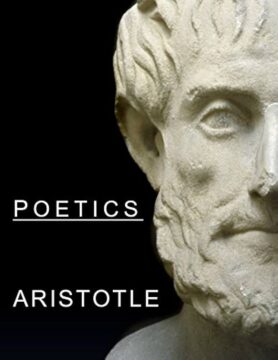Martha Bayles at The Hedgehog Review:
 If the Poetics, Aristotle’s treatise on the subject of tragedy, is rarely studied today, it is largely because the French Neoclassicists of the seventeenth century turned Aristotle’s descriptions of Greek tragedy into prescriptions. Finessed by Corneille and Racine, ignored by Molière, challenged by the Romantics, and rejected by the Modernists, the Poetics was all but forgotten by 1953. But each in his own way, Beckett and Clarke heeded the deeper insights it contains.
If the Poetics, Aristotle’s treatise on the subject of tragedy, is rarely studied today, it is largely because the French Neoclassicists of the seventeenth century turned Aristotle’s descriptions of Greek tragedy into prescriptions. Finessed by Corneille and Racine, ignored by Molière, challenged by the Romantics, and rejected by the Modernists, the Poetics was all but forgotten by 1953. But each in his own way, Beckett and Clarke heeded the deeper insights it contains.
The most important of these insights is that plot is the key to character. Aristotle did not reach this conclusion because he thought character unimportant. Rather, it was because, as he argued in the Ethics, the only way for one human being to discern the true character of another is to observe the other’s actions over a long period, preferably a lifetime. In the theater, where such lengthy observation is not possible, tragedy forces the issue by taking “a man like ourselves,” who despite his good intentions stands “between the two extremes” of “eminently good and just” and “vice and depravity,” and subjecting him to at least one wrenching, agonizing “reversal of fortune.”
more here.
